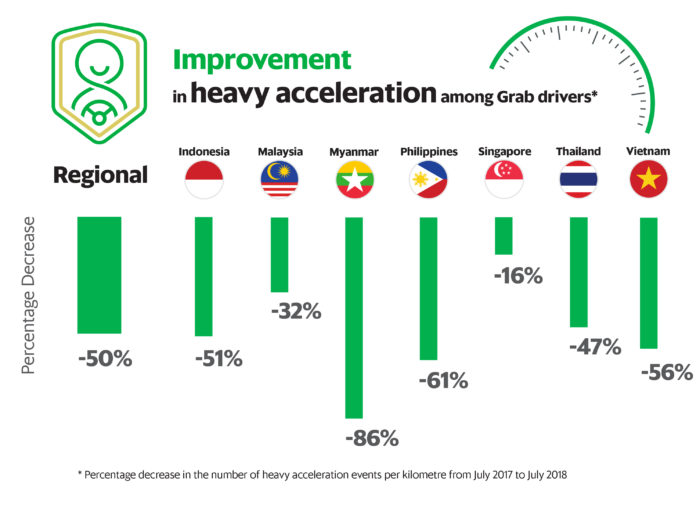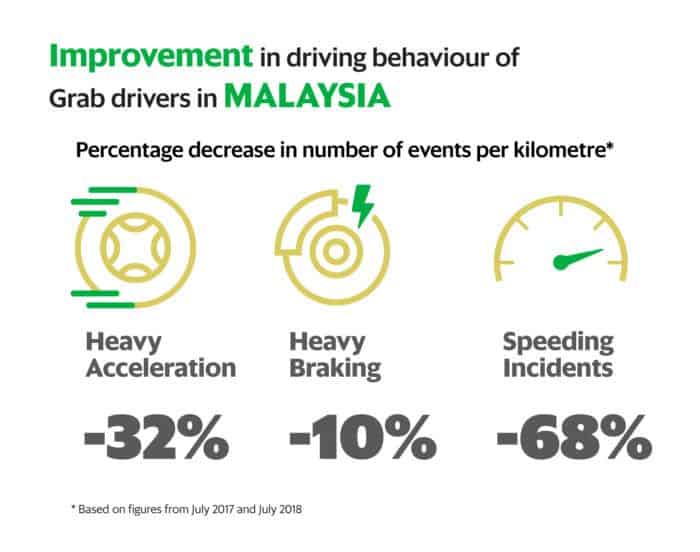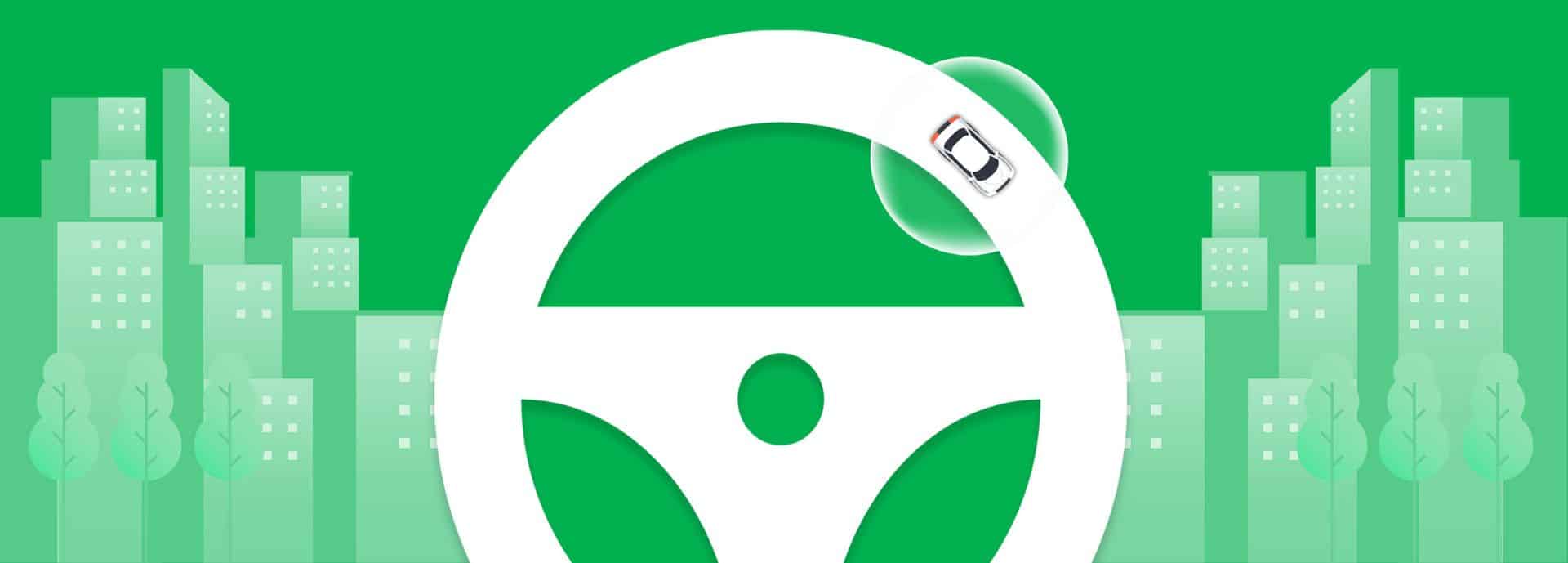No one likes jerky rides, that’s why at Grab, we’ve been helping our driver-partners understand how they drive so they can become better drivers.
By collecting GPS, gyroscope and accelerometer data from our app during Grab trips, we are able to provide our driver-partners with weekly telematics reports on their driving patterns like speeding, acceleration and braking, so they know where they can do better.
And the improvements across the region have been significant since the rollout of telematics in March last year.
In July 2017, the average number of speeding moments was 0.7 per 100km. By July this year, the figure dropped by 64%. Similarly, the average number of harsh braking and heavy acceleration instances per kilometre decreased by 23% and 50% respectively year-on-year.
Harsh braking and acceleration are unpleasant for the passenger, and are highly correlated to unsafe behaviours like tailgating, aggressive driving and losing focus on the road.
Furthermore, when drivers brake or accelerate harder or faster than necessary, they end up wasting more fuel, and damaging the brakes and tyre tread. Known as “lead foot syndrome”, such undesirable driving behavior has proven to emit more harmful gases and pollutes the environment as well.

“Drivers do see the telematics reports as a practical tool, among many, that help them become better drivers. They see direct benefits when they save money as they become more fuel-efficient over time,” said Nicholas Chng, head of safety and security at Grab.
By tracking the telematics data and observing driving patterns, we are also better able to provide proactive training to driver-partners where needed.
The telematics reports are part of our broader ‘Safer Everyday Tech Roadmap’, which includes measures specifically aimed at changing user safety habits – such as driver fatigue monitoring – to drive long-term behaviour change.
Raising transport safety standards in ASEAN
According to the World Health Organization (WHO), 25 per cent of all fatal road traffic accidents globally take place in Southeast Asia (which for WHO, includes Indonesia, Myanmar and Thailand). And the Western Pacific Region (which includes Malaysia, Singapore, Philippines, Cambodia and Vietnam) has the highest number of fatal road traffic injuries worldwide.
However, the fatality rates are very diverse within ASEAN – for example, the fatality rate per 100,000 population in Malaysia and Thailand is about five times greater than in Singapore. There were 155 traffic fatalities in Singapore in 2014.
Because of this diversity, we’ve been partnering with government agencies across Southeast Asia to develop tailored, localized initiatives that address their top safety concerns. In Singapore, Grab drivers will have access to a more holistic healthcare programme with the Health Promotion Board, to face their unique challenges as they sit and drive for long hours.
Initiatives that target behavior changes such as the telematics reports are already bearing fruit. Although the distance covered by Grab drivers in Singapore shot up by 74% in July this year, compared to last year, the average number of speeding and heavy acceleration incidents per kilometre have gone down by 48% and 16% respectively, while hard braking remains level.
Grab’s efforts at improving safety in Malaysia, and across the region, has also been recognised. In early December, we won an award at the inaugural 3M Road Safety Award for Southeast Asia, which recognises the diligent efforts put into the improvement and advancement of road safety in the region by individuals, public and private organisations.

Measuring how well one drives – from the smartphone
Using telematics data from smartphones is still a pretty new field, so we had to build an algorithm from scratch to measure indicators of unsafe driving.
We first developed a list of descriptive statistics, or “features”, that we think are indicative of dangerous driving. For example, driving at a certain speed above the national limit could be considered speeding, hence unsafe. Using a machine learning model, these hypothesized features are then validated against data from a set of trips that were flagged by passengers for dangerous driving, and subsequently confirmed as dangerous after investigation by Grab. This step is done to ensure the features can reliably indicate unsafe driver behaviour.
With this algorithm in place, we can now efficiently process an enormous amount of GPS data from our driver-partners.
“It sounds like common sense but our results do show that passengers value trips with safe driving behaviours. Trips that our telematics safety model monitored as safe have significantly higher ratings on average than trips that our model monitored as less safe. A safe trip will have less harsh braking, acceleration or speeding,” said Nicholas.
“Road safety continues to be critically important to us, and we’re using telematics to improve safety proactively, so that passengers can get to their destinations comfortably and safely.”
